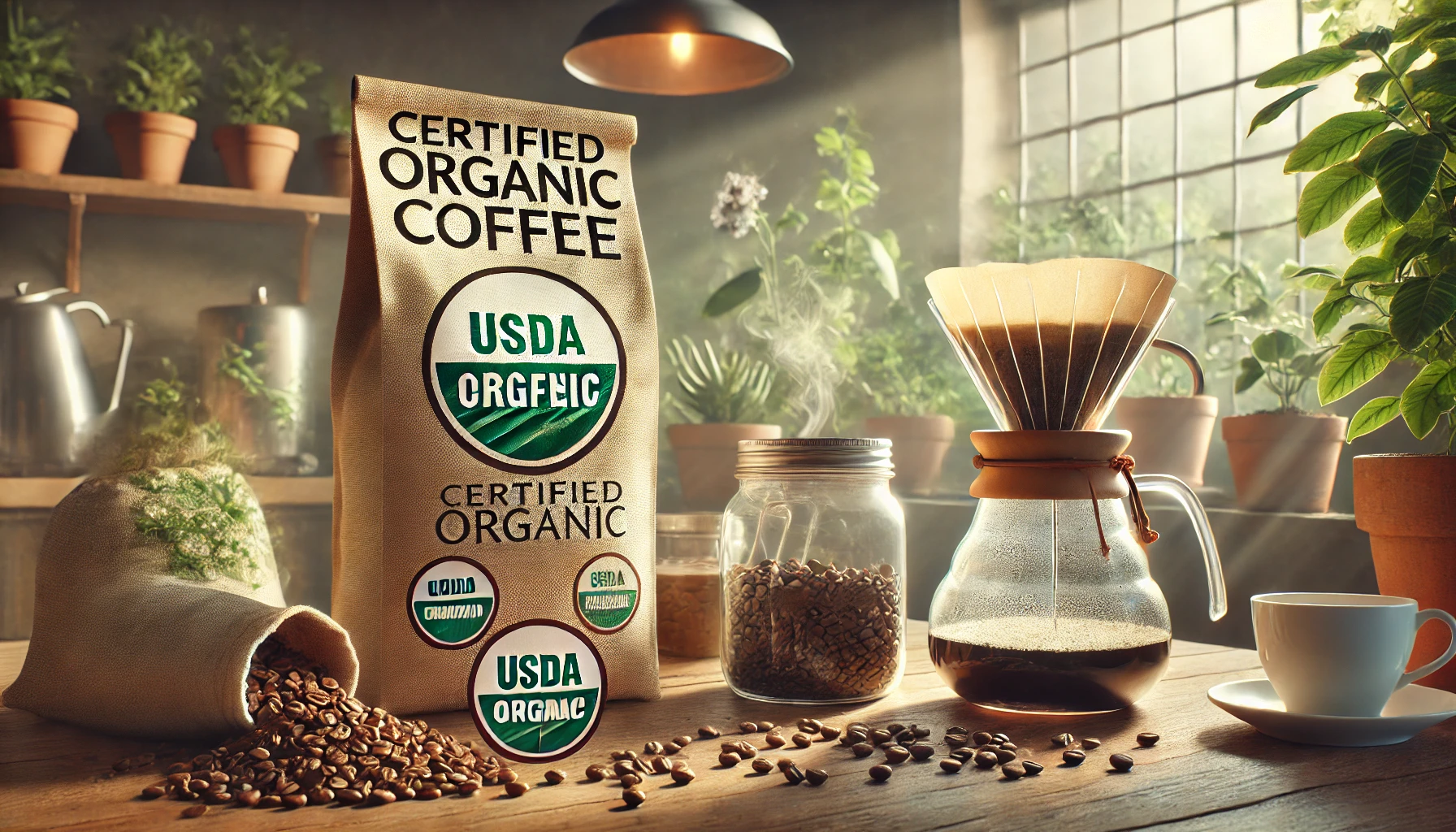In a world where consumers are increasingly mindful of what they eat and drink, organic coffee has gained serious attention. But what does “organic” really mean when it comes to coffee, and is it actually better—for your health, your cup, or the planet?
In this article, we’ll break down what organic coffee is, how it’s grown, why it’s trending, and what to look for when choosing an organic brew.
What Is Organic Coffee?
Organic coffee is grown without the use of synthetic fertilizers, pesticides, or herbicides. Instead, farmers use natural, sustainable farming methods to nurture the coffee trees and surrounding ecosystem.
To be officially certified organic, the coffee must meet strict standards set by organizations like:
- USDA Organic (United States)
- EU Organic (European Union)
- JAS Organic (Japan)
These certifications ensure the coffee is:
- Grown on land free of chemicals for at least three years
- Managed using organic-approved pest and soil systems
- Processed and stored without contamination from non-organic products
How Organic Coffee Is Grown
Organic coffee farming focuses on soil health, biodiversity, and sustainability. Common practices include:
- Composting and using natural fertilizers (e.g. manure, coffee pulp)
- Planting shade trees to protect crops and support wildlife
- Rotating crops to preserve soil nutrients
- Avoiding genetically modified organisms (GMOs)
These practices help create a more resilient and self-sustaining ecosystem, which can produce higher quality beans in the long term.
Benefits of Organic Coffee
1. Fewer Chemicals in Your Cup
Organic coffee is free from synthetic pesticides and chemical residues that could end up in your brew. While studies suggest most coffee doesn’t pose health risks, many consumers prefer organic to minimize chemical exposure.
2. Better for the Environment
Organic farms:
- Reduce chemical runoff into soil and water
- Support pollinators and native species
- Enhance soil fertility through natural composting
- Promote long-term sustainability
In short, organic farming protects ecosystems and fights deforestation and degradation, especially in coffee-growing regions.
3. Often Grown in Shade
Most organic coffee is shade-grown, which:
- Slows down coffee cherry maturation (for better flavor)
- Preserves forest canopy and wildlife habitats
- Requires less irrigation and reduces erosion
Shade-grown coffee typically has richer, more complex flavors, especially in medium and light roasts.
4. Supports Ethical Trade
Many organic farms also:
- Participate in Fair Trade or direct trade programs
- Pay higher wages and ensure better working conditions
- Reinforce community-based agriculture
Buying organic often means you’re supporting smallholder farmers and co-ops, especially in Latin America, Africa, and Southeast Asia.
Is Organic Coffee Healthier?
While coffee itself is rich in antioxidants regardless of certification, choosing organic may offer benefits like:
- Lower exposure to synthetic chemicals
- Cleaner processing practices
- Potentially richer nutrient content from healthier soils
However, non-organic coffee is still considered safe when sourced from reputable roasters. Health-conscious drinkers may simply feel more confident choosing organic.
Does Organic Coffee Taste Better?
Organic certification doesn’t guarantee great taste—but organic farming often goes hand-in-hand with higher quality standards. Many organic beans are also:
- Single origin
- Hand-picked
- Small batch roasted
Flavor depends on the region, roast, and brew method, but many coffee lovers describe organic beans as:
- Cleaner and smoother
- More balanced acidity
- Richer in subtle notes (fruit, floral, chocolate)
How to Identify Real Organic Coffee
Look for trusted certifications on the label, such as:
- USDA Organic
- EU Organic
- Rainforest Alliance (not always organic, but sustainability focused)
- Certified Fair Trade (often overlaps with organic)
Also, check for:
- Roast date (freshness)
- Origin and farm details
- Traceability and transparency
Buy from reputable roasters that specialize in direct sourcing and ethical practices.
Is Organic Coffee More Expensive?
Typically, yes. Organic beans often cost $2–$5 more per bag. That’s due to:
- Lower yields from chemical-free farming
- Certification costs
- Labor-intensive growing and harvesting
But many consumers feel the benefits in taste, ethics, and sustainability justify the price.
Final Thoughts: A Greener, Cleaner Cup
Organic coffee isn’t just a label—it’s a philosophy rooted in sustainability, health, and quality. Whether you’re drawn to the environmental impact, the cleaner cup, or the potential for better taste, choosing organic coffee is a small shift that supports a bigger mission.
So next time you brew, try a fresh bag of organic beans—and feel good about what’s in your cup and how it got there.
